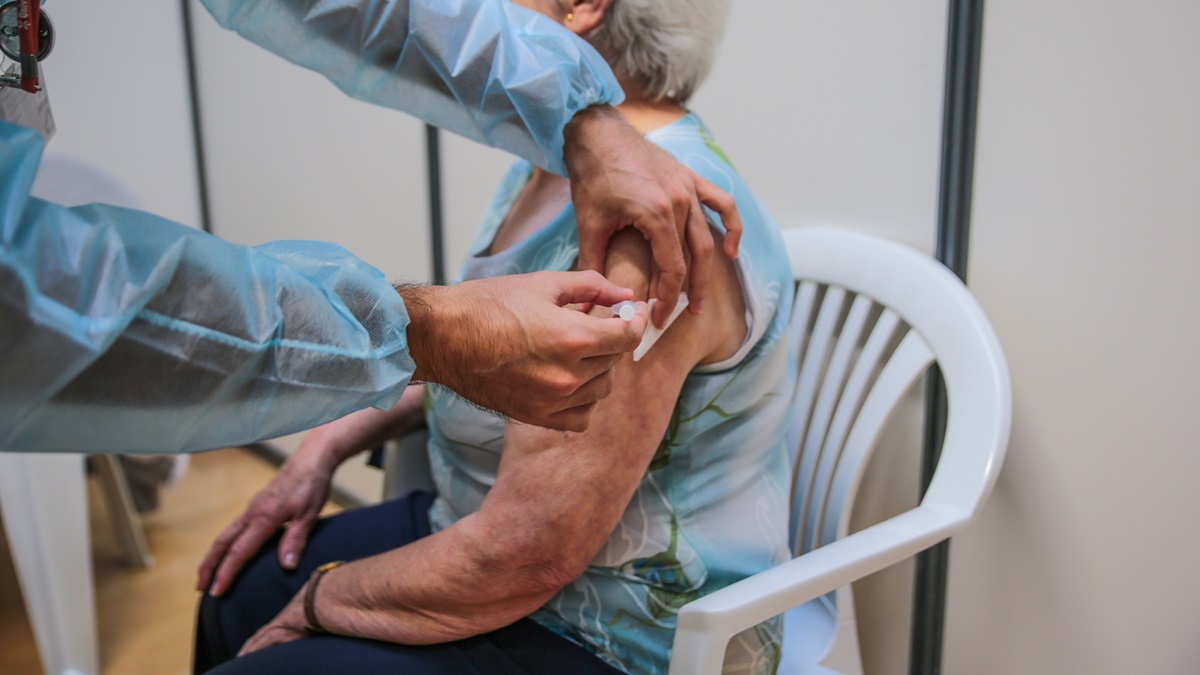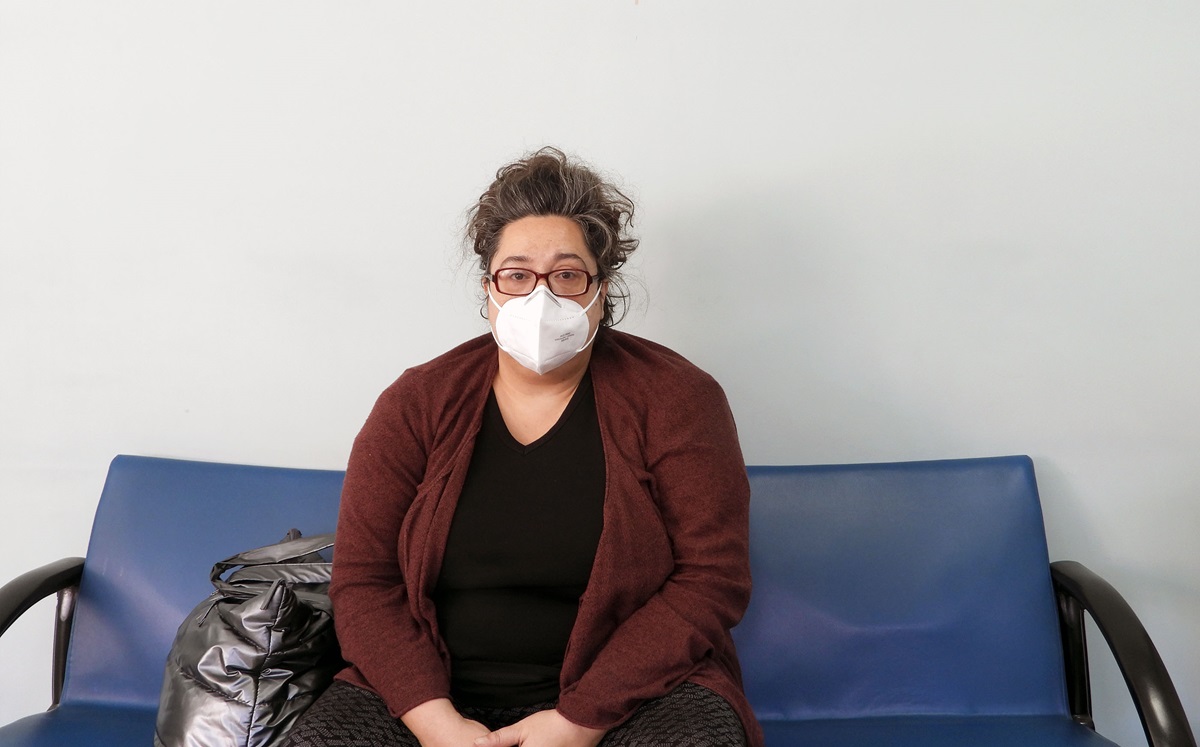No images? Click here
Advisory group urges countries to prioritize protecting the most vulnerable with COVID-19 vaccination and integrate COVID-19 vaccination into routine health-care strategies
05-01-2023
The independent European Technical Advisory Group of Experts on Immunization (ETAGE) has advised countries to increase efforts to achieve high COVID-19 vaccination coverage (primary and booster dose) among high-risk groups and to plan for the integration of COVID-19 vaccination into routine health-care strategies. These are among the recommendations provided by ETAGE at its 22nd meeting in Copenhagen, Denmark in December 2022. Read full story
Launch of WHO–OECD report on the burden of insufficient physical activity in Europe
17 February 2023
13:00 – 15:00 CET
The new report “Step up! Tackling the burden of insufficient physical activity in Europe” explains how increasing physical activity can prevent thousands of premature deaths in the EU and save billions of euros in health-care spending annually.
UKRAINE EMERGENCY
HIV prevention, diagnosis and care for Ukrainian refugees in Poland
27-12-2022
The WHO 2022–2030 global health sector strategy on HIV reaffirmed an ambitious challenge to the world – to end AIDS as a public health threat by the year 2030, through determination, collaboration and sufficient funding to make this happen. With access to the right treatment and an understanding of the lifestyle adjustments needed, those living with HIV are now able to enjoy long and healthy lives. For many countries, this is an achievable goal thanks to affordable HIV drugs, established regimens, good prevention programmes and early diagnosis. However, when unforeseen events such as war and other emergencies happen, many hard-won gains can easily be overturned. Ukraine has long had one of the highest disease burdens of HIV of the 53 countries of the European Region. Figures from 2021 indicated that almost quarter of a million Ukrainians were living with the disease, and certain groups, such as drug users, men who have sex with men, and sex workers, are at higher vulnerability and risk of infection, just as everywhere in the world.
WHO trains thousands of health care workers in mass casualty and trauma care amid the war
23-12-2022
Active play brings friends together: WHO started a new project for Ukrainian children in Poland
22-12-2022
WHO-supported emergency medical teams begin work in newly regained areas in Ukraine
16-12-2022
Joint ECDC-WHO Regional Office for Europe Mpox Surveillance Bulletin: 04 January 2023
04-01-2023
Health workers build confidence in COVID-19 vaccination in Kazakhstan
22-12-2022
Increasing Recognition, Research and Rehabilitation for Post COVID-19 Condition (long COVID)
Publications and technical guidance
Publications, country and technical guidance for the COVID-19 outbreak

05-01-2023
The risks and harms associated with drinking alcohol have been systematically evaluated over the years and are well documented. The World Health Organization has now published a statement in The Lancet Public Health: when it comes to alcohol consumption, there is no safe amount that does not affect health. Alcohol is a toxic, psychoactive, and dependence-producing substance and has been classified as a Group 1 carcinogen by the International Agency for Research on Cancer decades ago – this is the highest risk group, which also includes asbestos, radiation and tobacco. Alcohol causes at least seven types of cancer, including the most common cancer types, such as bowel cancer and female breast cancer. Ethanol (alcohol) causes cancer through biological mechanisms as the compound breaks down in the body, which means that any beverage containing alcohol, regardless of its price and quality, poses a risk of developing cancer.
Practice makes perfect: responding to emergencies as a National IHR Focal Point
23-12-2022
Digital health not accessible by everyone equally, new study finds
21-12-2022
New WHO manual: a few simple questions can save millions of lives
13-12-2022
Increase in invasive Group A streptococcal infections among children in Europe, including fatalities
12-12-2022
Health for all: Meeting the needs of children and adolescents through enabling policies
08-12-2022

10-01-2023
Science, surveillance, responsibility: 3 words that encapsulate my 3 main messages to the WHO European Region today, amid the latest developments in the COVID-19 narrative. From the information available to WHO, the SARS-CoV-2 virus variants circulating in China are those that have already been seen in Europe and elsewhere. We share the current view of the European Centre for Disease Prevention and Control (ECDC) that the ongoing surge in China is not anticipated to significantly impact the COVID-19 epidemiological situation in the WHO European Region at this time. But we cannot be complacent. While we acknowledge that China has been sharing virus sequencing information, we need detailed and regular information, especially on local epidemiology and variants, to better ascertain the evolving situation. Read the full article Watch the video

06-01-2023
The WHO European Region saw an early start to the influenza season this winter, with respiratory syncytial virus (RSV) and COVID-19 cases also rising. Taken together, this has the potential to lead to severe impacts for health services and populations. We spoke to 2 staff from KoiSPE Athina-Elpis, a cooperative enterprise located in the centre of Athens, Greece, to get their perspectives on what this could mean for them and their country, and why they think getting vaccinated is so important. Eleni Douna, is an occupational doctor within the organization, which was set up to help people with psychosocial problems reintegrate into the community through work opportunities. Part of her role involves administering vaccines to help protect the health of the KoiSPE Athina-Elpis workforce.
WHO provides assistive products for thousands of displaced people in Ukraine
05-12-2022
Health workers in North Macedonia urge vulnerable people: get vaccinated against seasonal influenza
26-12-2022
WHO supports Armenia through surge in rehabilitation needs caused by pandemic and conflict
22-12-2022
Spain gears up for the holiday season – influenza and COVID-19 vaccination underway
21-12-2022

EVENTS
Launch of Status report on prison health in the WHO European Region 2022
15 February 2023 10:00 – 14:00 CET, Lisbon, Portugal (hybrid event)
Launch of WHO–OECD report on the burden of insufficient physical activity in Europe
17 February 2023 13:00 – 15:00 CET, UN City, Copenhagen, Denmark (hybrid event)
2th HEPA Europe conference: “Implementing health-enhancing physical activity research: from science to policy and practice”
11 – 13 September 2023, Leuven, Belgium









